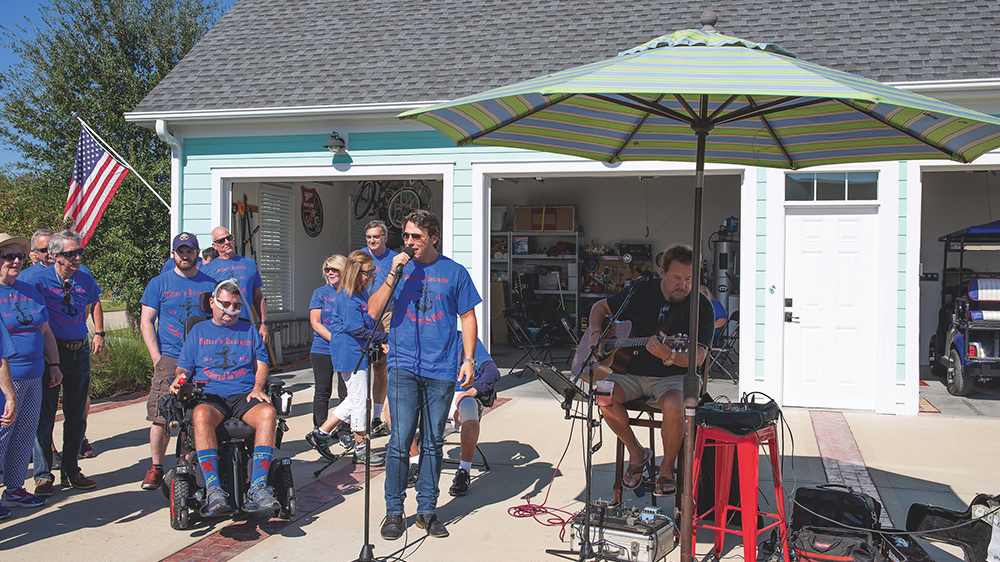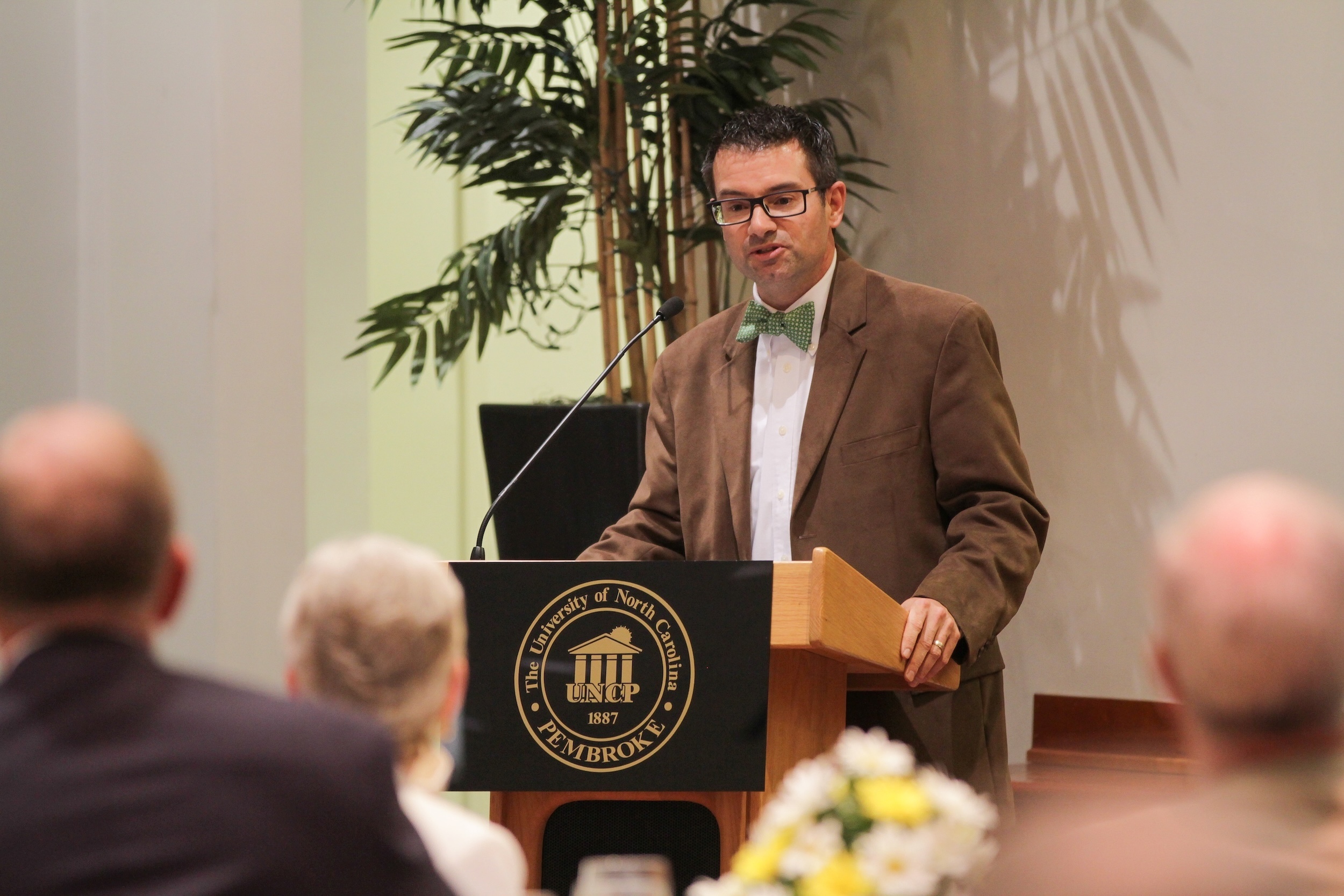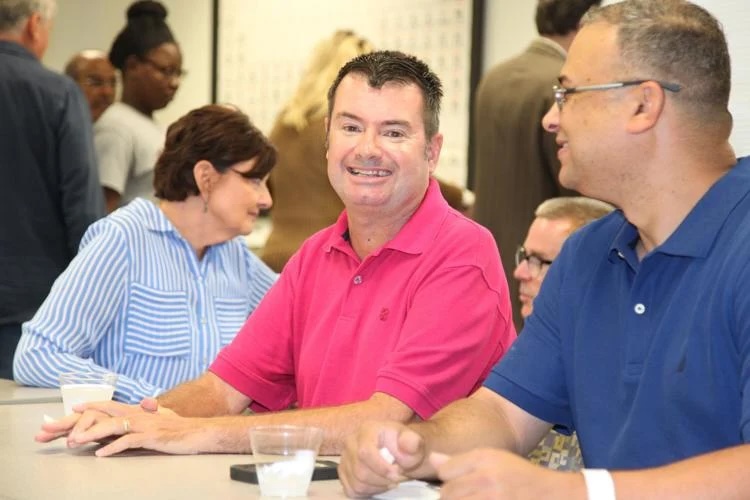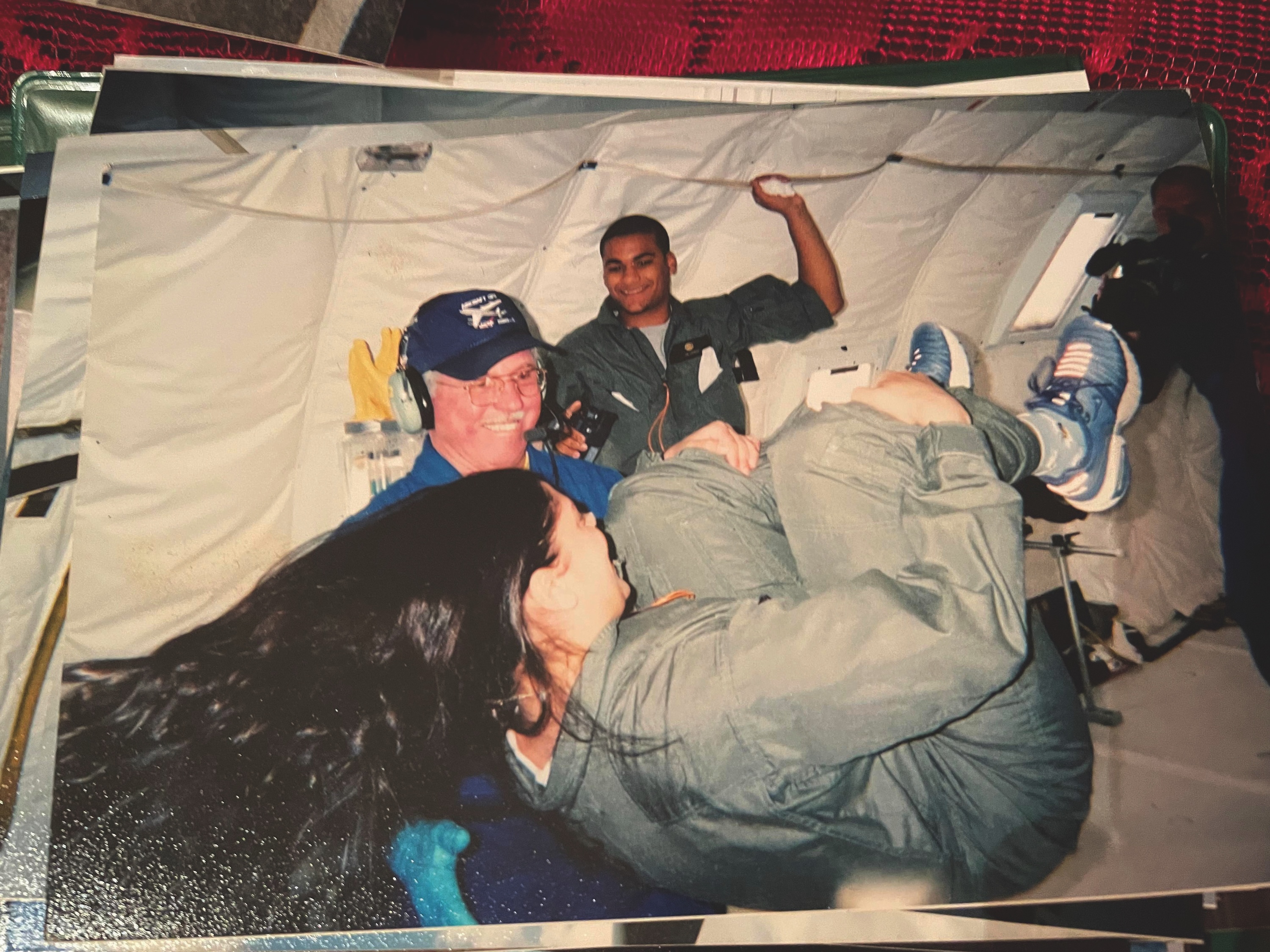Classroom to the Cosmos: Dr. Tim Ritter’s Lasting Influence

The best and brightest from STEM powerhouses — MIT, Illinois, Wisconsin, Purdue — gathered at NASA’s Houston campus, eager to showcase their engineering, physics and virtual reality expertise. And then there was a group from a small regional university, a school that likely no one else in the room had ever heard of. They called themselves the Weightless Lumbees. No one expected them to compete at this level — let alone own the room. They didn’t come from a world-renowned research lab or a billion-dollar tech incubator. They came from a small North Carolina college with no household name and no Ivy League pedigree. But when they stepped onto that NASA campus, they belonged. And when it was time to prove themselves, they did.
If you asked Dr. Tim Ritter, he would tell you that mentoring the Weightless Lumbees was the proudest accomplishment of his academic career. His eyes light up when he speaks about them, recalling how he taught them that they would fail many times — but that if they kept working, they would succeed. And they did. “Dr. Ritter encouraged and empowered us,” said Mary Beth Locklear ’03, ’12, a founding member of the Weightless Lumbees. “He believed we were just as good as Ivy League students. And the best part? We had so much fun and made memories to last a lifetime.” But Ritter’s influence stretched far beyond NASA’s competitions or the walls of a classroom. He was an educator in the purest sense, believing that physics was best taught through experience, discovery and joy.

He led students on field trips for “amusement park physics,” where they built their own accelerometers and studied the forces behind roller coasters. He beamed when a nontraditional student explained the physics behind a bundle of shingles falling from her roof. And he laughed when a student, much to his hunting buddies’ annoyance, turned a simple afternoon of target practice into a lesson in projectile motion. His students admired him for his passion. They loved him for his unwavering belief in them. He challenged them and pushed them beyond their limits because he knew that was where real growth happened. He had learned that lesson himself. “I was never the smartest or most gifted student,” Ritter admitted. “But I worked hard. Hard work makes up for anything you lack. Just keep working at it.” That resilience, that relentless drive, defines the battle he fights today.
The Fight Of His Life
ALS — amyotrophic lateral sclerosis, or Lou Gehrig’s disease — has taken so much from Ritter. It is a cruel, unrelenting illness. But Ritter refuses to surrender. Each day, he fights. He forces himself through exercises — arm curls, leg slides, standing up — tasks most people take for granted. He knows that if he can do them today just as he did them yesterday, then ALS hasn’t won. And he won’t let it win. But even in the face of his greatest challenge, his focus is not just on himself. He fights for others, leading “Ritter’s Recruits” in the ALS Association’s Walk to Defeat ALS. Every year, his army of friends and family raises thousands of dollars to fund research and spread awareness of the disease. This year alone, they raised over $23,000. And Ritter would be the first to tell anyone willing to listen that he is not fighting alone.
His wife, Marie, is his rock, his hero. Friends visit him regularly, lifting his spirits and reminding him that he is not in this battle alone. His UNCP family — students and colleagues alike — continues to stand by him. Even in retirement, his legacy continues. He and Marie recently created the Dr. Timothy M. Ritter and Marie A. Amero Endowed Research Scholarship, which encourages students to push beyond the classroom, attend conferences, present research and challenge their own limits — just as he challenged them during his years as a physics professor at UNCP.
A Legacy That Will Never Fade
Ritter’s influence stretches far beyond the confines of the campus. Chemistry professor Dr. Meredith Storms recalled how Ritter’s energy and enthusiasm transformed the department. Former student Candace Langston marveled at his authenticity — the way he always made time for people and never forgot a conversation, even a decade later. And Cecelia Locklear, a fierce community advocate, remembered how he gave his time to local teachers, buying them pizza and staying late to help them navigate science fair paperwork. After all, Ritter lives a life of integrity, passion and purpose. And he follows one simple philosophy passed down from his father: “If you’re a good, honest person, others will see it. They will want to follow you. They will want to listen to you. The other things will fall into place.” His students, his colleagues, his friends and his family have seen it. They have followed him. They have listened. And because of that, his legacy will never fade.

